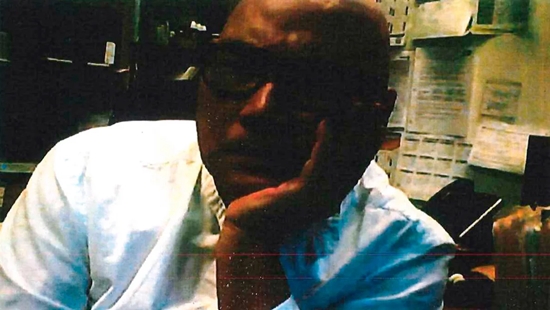
Although in custody since August 2020, former CIA agent Alexander Yuk Ching Ma is only now pleading guilty in a federal courtroom to spying for China. Maybe it took that long to finalize what the U.S. Justice Department calls “a war chest of damning evidence” against him (“Ex-CIA officer accused of spying for China pleads guilty in a Honolulu courtroom,” Associated Press, May 24, 2024).
But the case has been simmering for much longer. In 2004, many years after Ma (shown above) had resigned from the CIA, the FBI hired him as a contract linguist, a job that, according to Assistant U.S. Attorney Ken Sorenson, was given to him only as a “ ‘ruse’ to monitor his contact with Chinese intelligence officers.”
$50,000 in 2001
Ma signed up with the CIA in 1982, resigned in 1989, and spent many of the next years in Shanghai before returning to the U.S. and Hawaii in 2001 and being hired by the FBI as a contract linguist in 2004, work that he continued until 2012.
The government’s evidence includes video of Ma and an older relative “providing classified information to intelligence officers with China’s Ministry of State Security in 2001.” The Chinese agents gave them $50,000 for the information.
Later, on some unspecified date, Ma was the subject of a sting operation during which he “accepted thousands of dollars in cash in exchange for past espionage activities, and he told an undercover FBI agent posing as a Chinese intelligence officer that he wanted to see the ‘motherland’ succeed, prosecutors said.”
In 2006, while Ma was living in Hawaii, Chinese intelligence officers sent him photos of people they were interested in, Sorenson said, and Ma contacted the co-conspirator relative and convinced him to reveal at least two of the identities.
Ma, in pleading guilty, said everything Sorenson described is true. Ma said he had signed non-disclosure agreements that he knew would be in effect even after leaving the CIA and that he knew the information he was providing to the Chinese intelligence officials could harm the United States or help a foreign nation.
So the Justice Department had video evidence of Ma and “an older relative” (possibly an older brother also mentioned in the reporting) providing classified information to the Chinese Communist Party in 2001, before being hired by the FBI in 2004 as a ruse to track his further interactions with the CCP.
Then, “In 2006, while Ma was living in Hawaii, Chinese intelligence officers sent him photos of people they were interested in…and Ma contacted the co-conspirator relative and convinced him to reveal at least two of the identities.”
Does the SSSB know?
And then what happened? AP doesn’t say what, if anything, the SSSB or CCP did about the persons “they were interested in,” at least two of whom were identified by Ma’s co-conspirator. (The co-conspirator is now dead.) Saying a little more about the affair than the Associated Press, the Justice Department’s press release seems to imply that the two individuals identified by the co-conspirator are still around:
Ma further admitted that in February 2006, during this monitored employment by the FBI in Honolulu, Ma convinced CC #1 [Ma’s co-conspirator] to provide the identities of at least two individuals depicted in photographs that were provided to Ma by SSSB intelligence officers. [“SSSB” is China’s Shanghai State Security Bureau.] The individuals’ identities were and remain classified U.S. national defense information. Ma confessed that he knew that this information, and the information communicated in March 2001, would be used to injure the United States or to benefit the PRC, and he deliberately engaged in the criminal conspiracy with CC #1 and the SSSB anyway.
After Ma convinced his co-conspirator to provide the identities of at least two of the persons in a photograph provided by the SSSB officers, did the SSSB officers learn the two identities? Or did Justice intervene to prevent them from doing so? Or what? The statement that the two identities “were and remain classified” seems to suggest that the SSSB did not learn the identities. But this is not stated explicitly. A foreign government can learn classified information that thereafter remains classified.
Alexander Yuk Ching Ma, 71 (according to Justice; 72, according to AP), has agreed in a plea deal to serve ten years in prison, premised on his continued cooperation with the U.S. government. But he won’t be formally sentenced until September 11, 2024.





